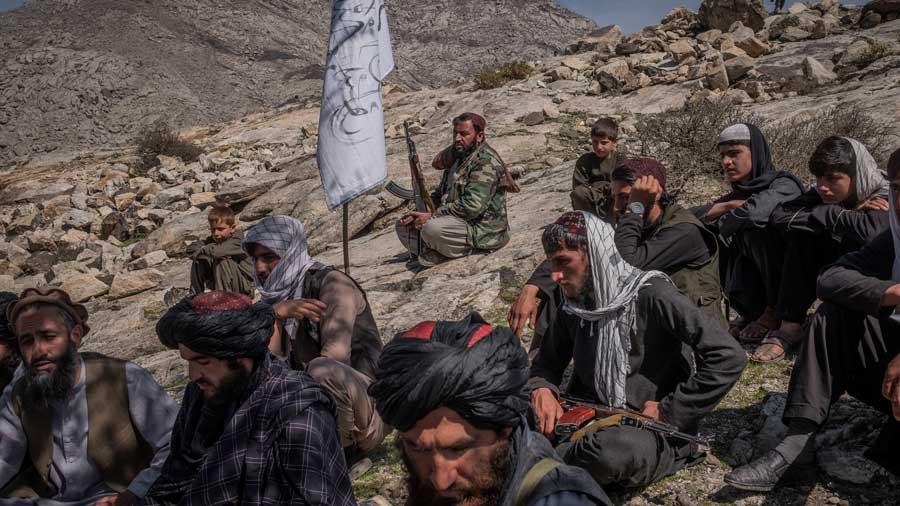The Taliban claimed on Friday that they now control 85 per cent of Afghanistan's territory amid a surge in wins on the ground and as American troops complete their pullout from the war-battered country.
The announcement came at a press conference at the end of a visit by a senior Taliban delegation to Moscow this week a trip meant to offer assurances that the insurgents' quick gains in Afghanistan do not threaten Russia or its allies in Central Asia.
The claim, which is impossible to verify, was considerably higher than previous Taliban statements that more than a third of the country's 421 districts and district centres were in their control. There was no immediate response from the government in Kabul on the latest claim.
Earlier this week, Taliban advances forced hundreds of Afghan soldiers to flee across the border into Tajikistan, which hosts a Russian military base. Tajikistan in turn called up 20,000 military reservists to strengthen its southern border with Afghanistan. Russian officials have expressed concern that the Taliban surge could destabilize the ex-Soviet Central Asian nations north of Afghanistan.
Since mid-April, when President Joe Biden announced the end to Afghanistan's forever war, the Taliban have made strides throughout the country. They recently have swept through dozens of districts, taking control, often without a fight. Over the past week, they seized border crossings with Tajikistan, Uzbekistan and on Thursday, with Iran.
However, at the Moscow presser, the Taliban promised not to attack provincial capitals or seize them by force, and expressed hopes for a political resolution with Kabul.
We will not seize provincial capitals in order not to inflict death on Afghan citizen, said Taliban negotiator Mawlawi Shahabuddin Delawar.
Guarantees for that have been presented to the Afghan authorities, along with demands for the release of more Taliban prisoners from Afghan jails, Dilawar said. He added that the Taliban now control 85% of Afghan territory.
The Taliban also vowed they would "not allow anyone, any individual, any entity to use the soil of Afghanistan against the neighboring country, regional country and world country, including the United States and its allies.
We don't want to fight. We want to find a political resolution through political negotiations, said Taliban spokesman Mohammad Sohail Shaheen. The Taliban representatives spoke through a translator.
Iranian media reported Friday that the Taliban were in control of two border crossings between Afghanistan and Iran, including the key transit route of Islam Qala seized on Thursday. Iranian state radio said 300 Afghan soldiers and civilians had escaped the Taliban advance and slipped across the border to Iran.
In southern Kandahar there was fighting on Friday near the provincial capital and the government had sent more troops to protect the prison there from attempts by the Taliban to attack it and free the inmates.
Moscow, which fought a 10-year war in Afghanistan that ended with Soviet troops' withdrawal in 1989, has made a diplomatic comeback as a mediator, reaching out to feuding Afghan factions as it has jockeyed with the US for influence in the country.
It has hosted several rounds of talks on Afghanistan, most recently in March, that involved the Taliban even though Russia has labelled them a terrorist organisation.
Asked about this week's visit and the terrorist label, Kremlin spokesman Dmitry Peskov said Friday that Moscow's contacts with the Taliban were necessary, given how intensely the situation in Afghanistan is developing, how the situation on the border between Afghanistan and Tajikistan is developing.
AP via PTI

